SEO for Beginners: A Comprehensive Guide to Improving Your Website Ranking 2024
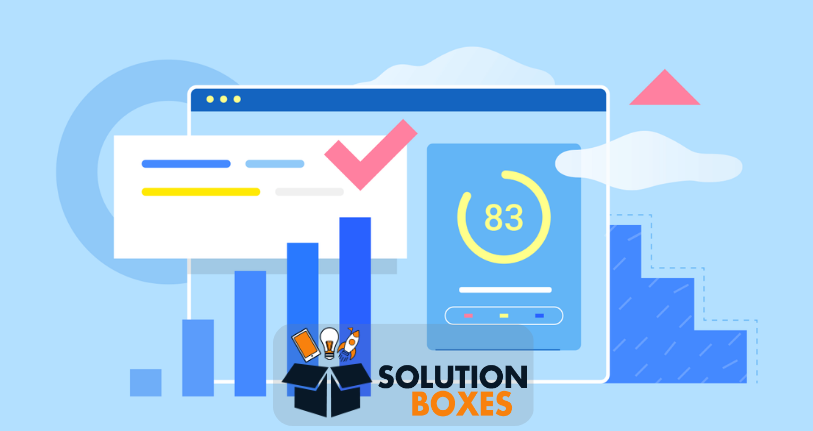
Header Outline:
I. Introduction to SEO
- Definition of SEO
- Importance of SEO
- Types of SEO
- How search engines work
II. Keyword Research
- Importance of Keyword Research
- How to find relevant keywords
- Long-tail vs. short-tail keywords
- Keyword tools
III. On-page Optimization
- Importance of on-page optimization
- Title tags, Meta descriptions, Header tags
- URL structure
- Content optimization
IV. Technical SEO
- Importance of technical SEO
- Site speed optimization
- Mobile-friendliness
- Schema markup
V. Link Building
- Importance of link building
- Types of links
- How to get backlinks
- Link building tools
VI. Measuring SEO Success
- Importance of tracking SEO success
- Metrics to track
- Google Analytics
- Google Search Console
VII. Conclusion
- Recap of key points
- Next steps for implementing SEO
Notes: The goal of this blog post is to provide a comprehensive guide to SEO for beginners. The content should be easy to understand and actionable for readers who are new to the topic.
I. Introduction to SEO
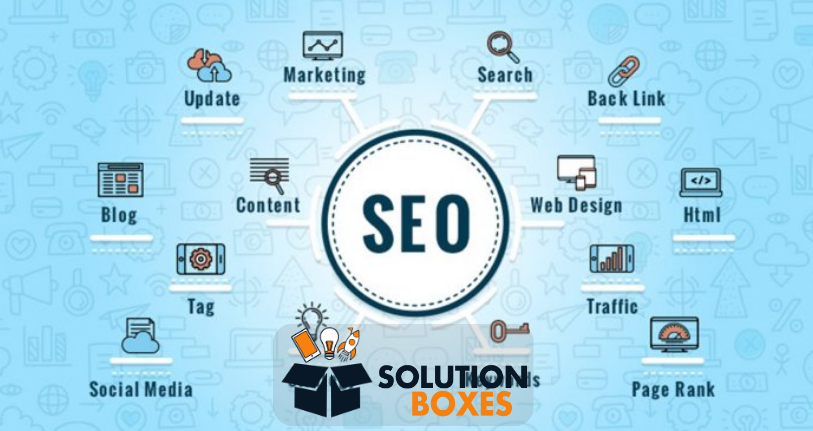
Search Engine Optimization, or SEO, is the practice of optimizing a website to improve its visibility and ranking in search engine results pages (SERPs). SEO is an essential aspect of digital marketing, as it helps businesses increase their online presence and attract more organic traffic.
In this section, we’ll discuss the importance of content marketing and provide tips for creating high-quality content.
Definition of SEO:
SEO is the practice of optimizing a website to improve its ranking in search engine results pages (SERPs).
Importance of SEO
SEO is crucial for businesses looking to improve their online visibility and attract more organic traffic. A high-ranking website is more likely to receive clicks and conversions than a website that appears lower in search engine results.
Types of SEO
There are three main types of SEO: on-page optimization, technical SEO, and off-page optimization.
How search engines work
Search engines use complex algorithms to determine the relevance and quality of a website’s content. They analyze various factors, such as keywords, content, and links, to rank websites in search results.
II. Keyword Research

Keyword research is the process of identifying the words and phrases that people use to search for products or services in your industry. By incorporating relevant keywords into your website’s content, you can improve its visibility and ranking in search engine results pages.
In this section, we’ll discuss the importance of keyword research, how to find relevant keywords, and the different types of keywords.
Importance of Keyword Research
Keyword research is essential for creating an effective SEO strategy. By identifying the keywords that your target audience is using to search for products or services in your industry, you can create content that is relevant and valuable to them.
How to find relevant keywords
There are several tools and techniques for finding relevant keywords, including using Google’s Keyword Planner, analyzing your competitors’ websites, and conducting customer surveys.
Long-tail vs. short-tail keywords
Long-tail keywords are longer and more specific phrases that people use to search for products or services. Short-tail keywords are shorter and more general phrases. Both types of keywords are essential in an SEO strategy, but long-tail keywords tend to have lower competition and higher conversion rates.
Keyword tools
There are various keyword research tools available, such as Google’s Keyword Planner, SEMrush, Ahrefs, and Moz Keyword Explorer. These tools can help you find relevant keywords and analyze their search volume, competition, and difficulty.
III. On-page Optimization
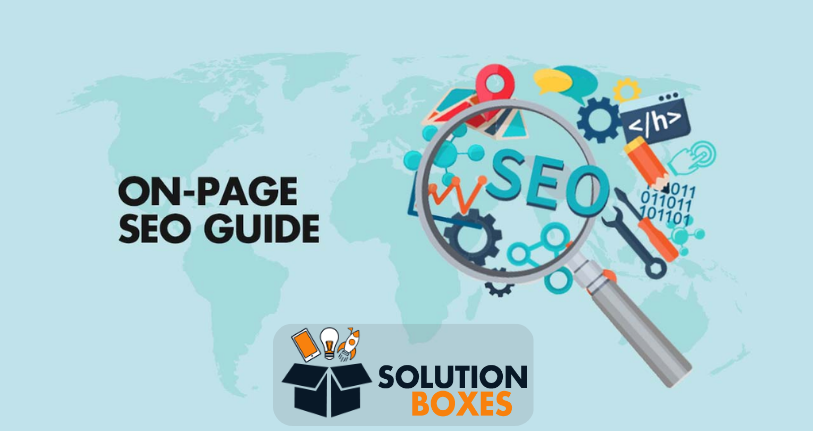
On-page optimization refers to the practice of optimizing individual web pages to improve their ranking and visibility in search engine results pages. This includes optimizing title tags, meta descriptions, header tags, URL structure, and content.
In this section, we’ll discuss the importance of on-page optimization and provide tips for optimizing your website’s content.
Importance of on-page optimization
On-page optimization is essential for improving your website’s visibility and ranking in search engine results pages. By optimizing your content and meta tags, you can make it easier for search engines to crawl and index your website.
Title tags, Meta descriptions, Header tags
Title tags and meta descriptions are HTML elements that provide information about a web page to search engines and users. Header tags are used to structure content and provide hierarchy.
URL structure
A clear and descriptive URL structure can help search engines and users understand the content of a web page.
Content optimization
Optimizing your content for search engines and users involves using relevant keywords, including high-quality images and videos, and ensuring that the content is easy to read and provides value to your target audience.
IV. Technical SEO

Technical SEO refers to the practice of optimizing a website’s technical aspects to improve its ranking and visibility in search engine results pages. This includes optimizing site speed, mobile-friendliness, and implementing schema markup.
In this section, we’ll discuss the importance of technical SEO and provide tips for optimizing your website’s technical aspects.
Importance of technical SEO
Technical SEO is essential for ensuring that search engines can crawl and index your website effectively. By optimizing your website’s technical aspects, you can improve its ranking and visibility in search engine results pages.
Site speed optimization
A fast-loading website is essential for providing a good user experience and improving your website’s ranking in search engine results pages. You can optimize your website’s speed by reducing file sizes, enabling compression, and using a content delivery network (CDN).
Mobile-friendliness
With the increasing use of mobile devices, it’s essential to ensure that your website is mobile-friendly. This includes using responsive design, optimizing images, and using mobile-friendly plugins.
Schema markup
Schema markup is a code that provides additional information about a web page to search engines. By implementing schema markup, you can make it easier for search engines to understand the content of your website.
V. Link Building
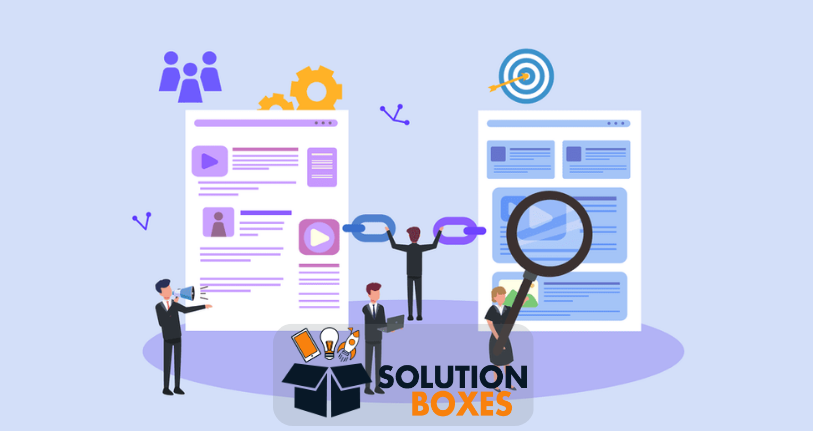
Link building is the practice of acquiring backlinks to your website from other websites. Backlinks are essential for improving your website’s authority and ranking in search engine results pages.
In this section, we’ll discuss the importance of link building and provide tips for acquiring high-quality backlinks.
Importance of link building
Backlinks are one of the most important factors in determining a website’s authority and ranking in search engine results pages. By acquiring high-quality backlinks, you can improve your website’s visibility and attract more organic traffic.
Types of links
There are several types of links, including internal links, external links, and backlinks. Internal links are links within your website, external links are links to other websites, and backlinks are links from other websites to your website.
How to get backlinks
There are several ways to acquire backlinks, including guest blogging, broken link building, and outreach.
Link building tools
Link building is an important aspect of SEO, as it helps to improve your website’s authority and visibility in search engine results pages. There are several tools available to help you with link building, including:
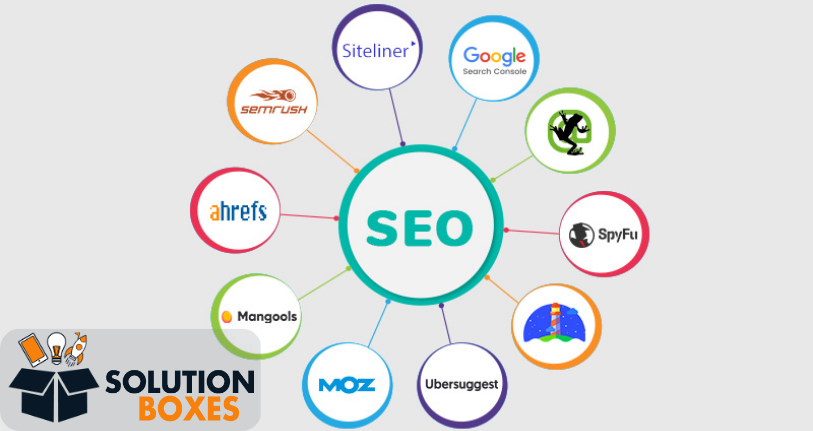
- Ahrefs: A popular SEO tool that includes a backlink analysis feature. Ahrefs allows you to analyze your own backlinks, as well as your competitors’ backlinks, to identify opportunities for link building.
- SEMrush: Another popular SEO tool that includes a backlink analysis feature. SEMrush allows you to analyze your own backlinks, as well as your competitors’ backlinks, to identify opportunities for link building.
- Moz Link Explorer: A backlink analysis tool from Moz, which allows you to analyze your own backlinks, as well as your competitors’ backlinks, to identify opportunities for link building.
- Majestic: A backlink analysis tool that provides detailed information on the quality and quantity of backlinks pointing to your website.
- Google Search Console: A free tool from Google that allows you to monitor your website’s performance in search results. You can use Google Search Console to monitor your backlinks and identify opportunities for link building.
When using these link building tools, it’s important to focus on building high-quality backlinks from authoritative websites. This can include guest blogging, broken link building, and outreach to relevant websites in your industry. Remember to always prioritize quality over quantity when it comes to link building, as low-quality backlinks can actually harm your website’s authority and visibility in search engine results pages.
VI. Content Marketing

Content marketing is the practice of creating and sharing valuable content to attract and retain a clearly defined audience. It can help improve your website’s visibility and authority in search engine results pages.
In this section, we’ll discuss the importance of content marketing and provide tips for creating high-quality content.
Importance of content marketing
Content marketing can help improve your website’s visibility and authority in search engine results pages. By creating high-quality content, you can attract and retain a clearly defined audience, and establish yourself as an authority in your industry.
Types of content
There are several types of content, including blog posts, videos, infographics, and social media posts. The type of content you create will depend on your audience and your business goals.
Content creation tips
When creating content, it’s important to focus on quality over quantity. You should also optimize your content for search engines by including relevant keywords and providing value to your target audience.
Content promotion
Once you’ve created high-quality content, it’s important to promote it to your target audience. This can include sharing your content on social media, reaching out to influencers, and running paid promotions.
VII. Local SEO

Local SEO is the practice of optimizing your website and online presence to improve your visibility in local search results. This includes optimizing your Google My Business profile, building local citations, and getting customer reviews.
In this section, we’ll discuss the importance of local SEO and provide tips for optimizing your website for local search.
Importance of local SEO
Local SEO is essential for businesses that rely on local customers. By optimizing your website and online presence for local search, you can improve your visibility in local search results and attract more local customers.
Optimizing Google My Business
Google My Business is a free tool that allows businesses to manage their online presence across Google, including in search results and on Google Maps. By optimizing your Google My Business profile, you can improve your visibility in local search results.
Building local citations
Local citations are mentions of your business on other websites, such as directories and review sites. By building local citations, you can improve your visibility in local search results and establish your business as a local authority.
Getting customer reviews
Customer reviews are essential for establishing your business as a trustworthy and reputable local business. By encouraging customers to leave reviews on Google and other review sites, you can improve your visibility in local search results and attract more local customers.
Title Tag: The Ultimate Guide to SEO: Tips and Strategies for Improving Your Website’s Visibility
Meta Description: Improve your website’s visibility and ranking in search engine results pages with our comprehensive guide to SEO. Learn about keyword research, on-page optimization, technical SEO, link building, content marketing, and local SEO strategies.
Conclusion:
In conclusion, SEO is an essential part of digital marketing. By optimizing your website for search engines, you can improve your visibility and attract more organic traffic. We hope this guide has provided you with valuable insights and tips for improving your website’s visibility and ranking in search engine results pages. Remember to focus on providing value to your target audience, optimizing your content for search engines, and building high-quality backlinks to improve your website’s authority and visibility.


